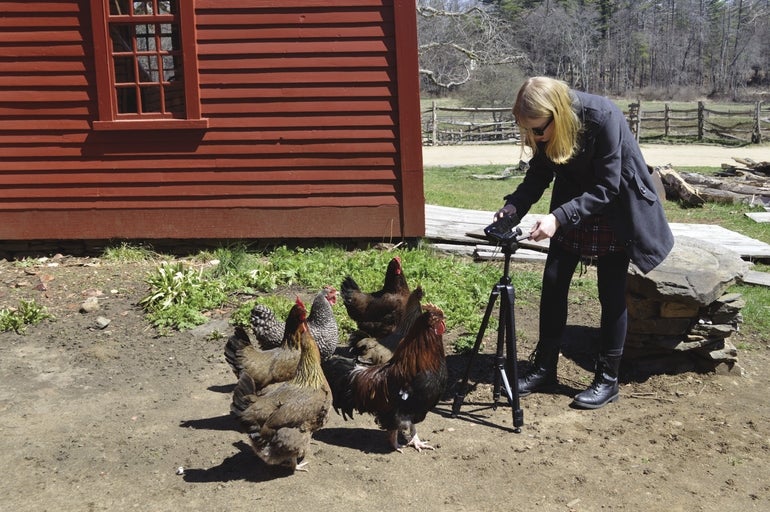With the state’s COVID-19 restrictions newly over, performance venues, museums and other cultural institutions across Massachusetts are able to welcome back guests, but sector leaders said Tuesday that they expect virtual offerings to remain a long-term feature.
Members of a special commission examining the pandemic’s impacts on the cultural sector said that reopening presents an opportunity to reimagine aspects of a field that typically operates on tight margins, where low pay can drive artists, performers and others away from their passions and into other lines of work.
MassCreative Executive Director Emily Ruddock said a handful of states — including Oregon, where state officials used federal CARES Act money early on in the pandemic to buoy arts and cultural institutions — are “seriously considering” legislation and policy to prop up their creative sectors, and Dan Yaeger of the New England Museum Association said that in Connecticut, Gov. Ned Lamont has proposed using $15 million in American Rescue Act funds to make admission at several museums free for children over the summer.
Massachusetts Cultural Council Executive Director Michael Bobbitt said losing artists — either those who move elswhere or shift into other work — would be “devastating for our economy.” He suggested policymakers explore ways to create jobs through public projects or “even see if we can somehow incentivize developers to put in artist housing or affordable housing for artists.”
“Or anyone that is looking at having less occupancy because of teleworking, could we somehow incentivize those leaseholders to convert space into artist studios or artist housing?” Bobbitt said. “We need those kind of creative ideas because we need to get those artists back here.”
Chaired by Tourism, Arts and Cultural Development Committee Chairs Rep. Carole Fiola and Sen. Ed Kennedy, the commission was created under a January 2021 economic development law to recommend recovery strategies for the state’s cultural and creative sectors.
The panel has until June 30 to submit its report. Fiola, a Fall River Democrat, noted that the dynamics have shifted since the commission was first envisioned, with the COVID-19 state of emergency slated to end in two weeks and previously shuttered venues now able to open at full capacity if they choose to do so.
“We need to look at this mission statement again and make sure that what we are discussing and talking about policy and planning for, that we are addressing the questions at hand,” Fiola said.
The commission is charged, under the law, with examining “ways to increase recovery and promote remote operations and programming in the commonwealth, including … training staff, developing new creative work regardless of format, barriers in reopening physical locations and maintaining a virtual presence, strategies for increased marketing and strategies for cross-promotional partnerships with other industries, including the hospitality industry.”
Fiola asked members if that mission has now changed or if facets of it are less relevant, given how far the state’s reopening has progressed.
Bobbitt said that his research suggests that hybrid operations are here to stay and that after an initial swell of people eager to return to in-person events, interest might pick back up in the convenience of virtual options.
“I would love to see somehow us creating some sort of legislation or policy around creating a fund so that people can hire people, digital experts, get software, get hardware, get streaming services, because I just think it’s here and forever,” he said.
StageSource Executive Director Dawn Simmons said many cultural organizations already had stretched budgets and were surprised to discover how much high-quality digital programming costs.
Gov. Charlie Baker originally set an Aug. 1 target for an end to the state’s COVID-19 restrictions and on May 17 moved that date forward to May 29. For some organizations, Simmons said, pivoting to put on a full live production over the summer will pose a challenge.
“For the theaters, there is a lot of board pressure now that things are open for organizations to produce something in the summer, whether it’s a small concert or something closer to a full production, but those things have not been budgeted for because most people were thinking ‘Great, things open in August, that prepares us for September,'” she said. “So there’s a little bit of a pinch point to do something now so that folks don’t seem overly cautious.”
At museums, Yaeger said, hybrid operations will likely be part of the programming landscape for the foreseeable future. The challenge of meeting demand for both in-person visits and virtual options like online gallery tours amounts to a question of “how do they walk and chew gum at the same time,” he said.
“Now the challenge there, of course, is we’ve in general reduced our staffing,” Yaeger said. “Many museums, their entire education departments have been wiped out through furloughs, layoffs, that type of thing. So I think the real challenge moving forward is…how do we have the bandwidth to do that dual programming that’s expected of us and is actually a big part of our sustainability moving forward?”

